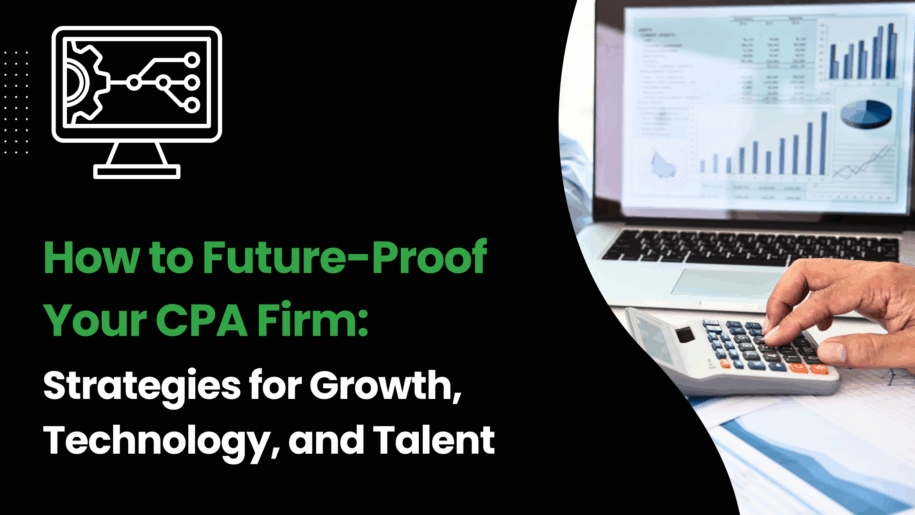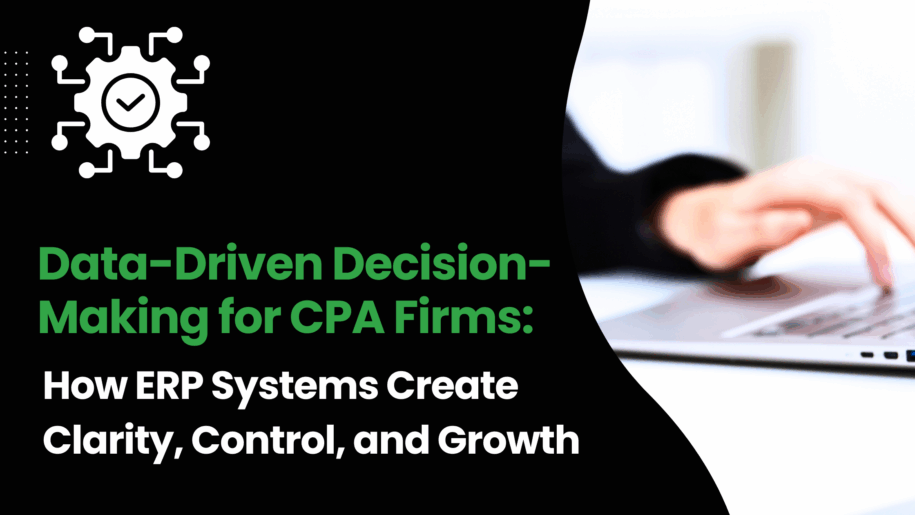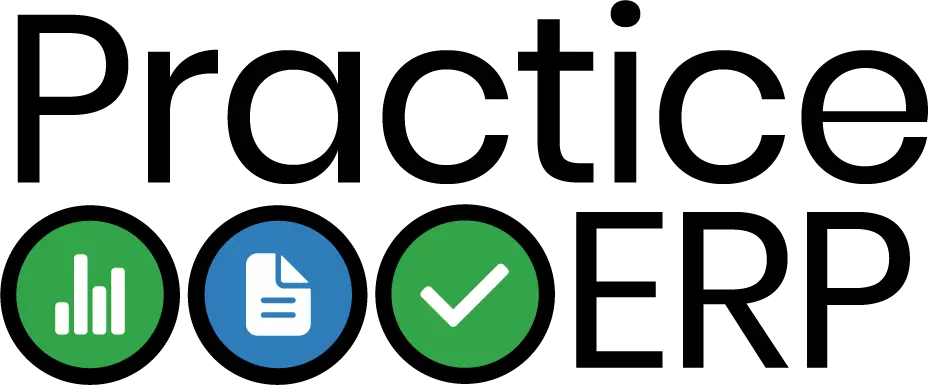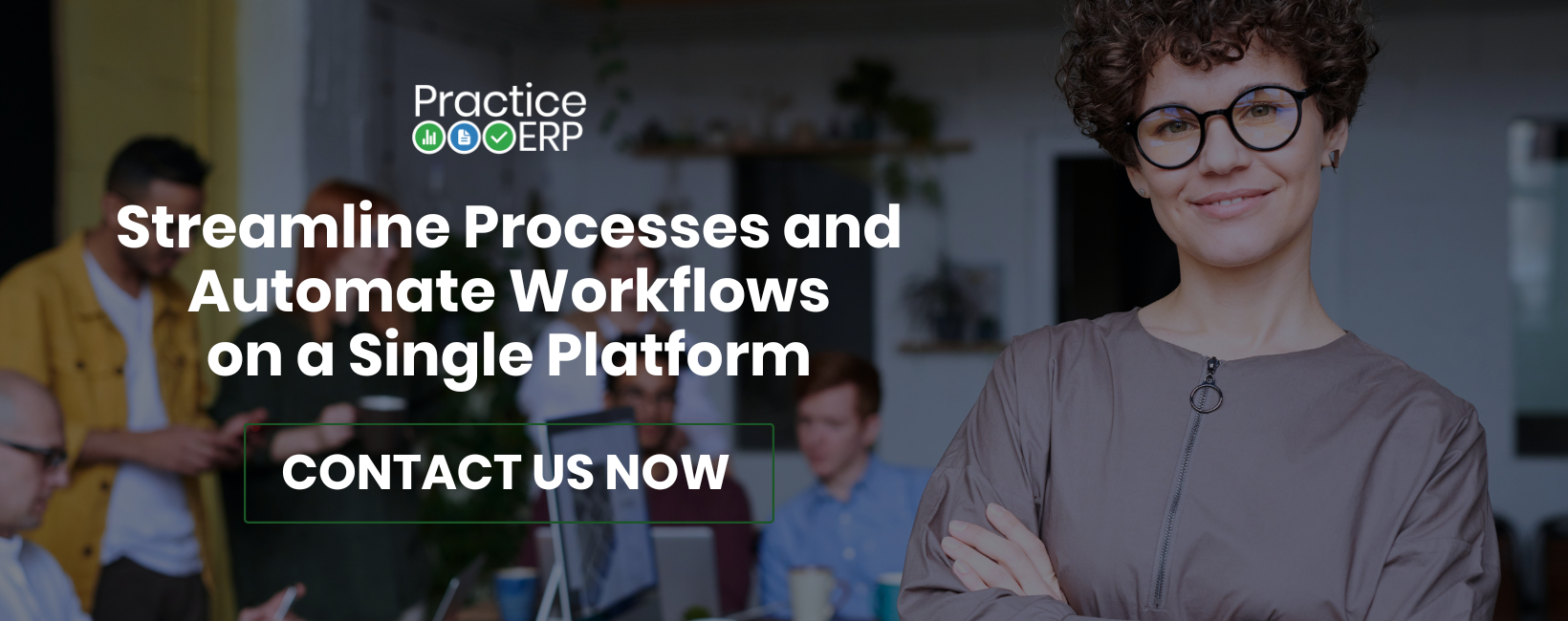Cloud ERP for Growing CPA Firms
We hear over and over again from CPA firms that are burdened by multiple systems that don’t ‘talk’ or share data with each other.
Accounting is a professional industry that relies heavily on spreadsheets, manual processes, paper and basic software systems. As a result, the field is ripe for a technological overhaul. As they work to stay abreast of rapid law changes, usher clients through the complexities of new programs like the PPP and attract top-notch talent to their teams, Certified Public Accountant (CPA) firms need unified technology platforms that can run all facets of their businesses.
Today’s CPA firms need innovative dashboards, reporting capabilities and customer relationship management (CRM) tools in order to boost sales performance, improve productivity, generate accurate reports and reduce IT costs. As their client bases expand and as the complexities of financial accounting grow, these inefficiencies can take a major toll on a firm’s bottom line.
“The pain point on every CPA firm’s mind right now is rapid law change,” said Tim Moy, CPA, Managing Partner of MBE CPAs, a professional accounting firm with 11 offices in Wisconsin. Some of the laws that are currently going through the regulatory approval process, for example, include rules that will be retroactive to January 2020. “That changes the rules backwards by over 15 months.” Managing those changes won’t be easy for CPA firms whose technology and workflows are stuck in the dark ages.
Managing those changes won’t be easy for CPA firms whose technology and workflows are stuck in the dark ages.
How Technology Is Holding CPA Firms Back
In the U.S., there are more than 138,000 accounting firms that generated over $110 billion in revenues in 2020. Small to midsized firms with anywhere from 30 to 200 employees rely heavily on disparate technology systems (e.g. one for tax preparation, one for time-keeping, another for the firm’s financials, etc.) and spreadsheets to run their businesses.
“We hear over and over again from CPA firms that are burdened by multiple systems that don’t ‘talk’ or share data with each other,” said Dirk Shimpach, CPA, founder and partner, goVirtualOffice (GVO), a NetSuite Solution Provider and cloud technology advisor. “Most of them are using many different systems they patched together in order to manage their day-to- day operations.”
The same firms are also dealing with increased competition for new customers and employees, both of whom expect their CPA firms to have the latest technology in place. That technology isn’t just for show either; it’s an invaluable tool for managing the complexities of financial compliance, audits and ever-changing governmental regulations. Even the seemingly straightforward act of properly completing and submitting a tax form on time requires numerous steps and checkpoints.
CPA firms must also maintain strong oversight of their client billing, budgets and actual spend. Because margins are tight in the accounting world, monitoring budgets-versus-actuals is a critical step. This is manageable when you have the data at your fingertips, but it’s extremely difficult when you’re using disparate systems and attempting to bring all of the relevant data into a single report.
Here’s the Answer to the Problem
PracticeERP is a system developed by GVO for CPA firms that are grappling with too many spreadsheets, manual processes and disparate systems. It extends NetSuite functionality to help companies boost sales, enhance productivity, gain access to better information and reduce their IT costs.
By delivering a complete suite of accounting firm focused functionalities in the cloud, GVO helps companies connect the dots across CRM, client services, workflow/task management, time/expense tracking, work in progress, billing automation, accounting, financials and business intelligence.
The solution also includes a dashboard that CPA firms’ clients can use to view accounts receivable and print customer statements, pay invoices online and submit customer support questions.
100 Days or Less
Using the SuiteSuccess methodology, GVO typically takes 100 days (or less) to implement PracticeERP for a new client. The solution includes sales dashboards for lead, prospect, referral and deal tracking, activity tracking with automated reminders and integrated marketing automation and nurturing. Because CPA firms manage most of these activities manually, the benefits of these CRM functionalities can be substantial for a CPA firm.
For example, PracticeERP streamlines the lead- to-cash process, provides real-time visibility into customers’ pipelines, makes business forecasts more predictable and helps improve sales performance. Using the solution’s full client views, CPA firms can view all client information from a single screen that’s also accessible from a mobile device.
With PracticeERP, CPA firms can expect anywhere from 25% to 40% cost savings just from eliminating those disconnected systems and automating processes that were once handled manually. Month-end work in progress (WIP), billing and invoicing will take a few hours instead of days, and the need for manual data reentry is completely eliminated.
Because the solution automates workflows, task management and other functions, the other benefits that CPA firms can expect range from improved client relationships to efficiency improvements to productivity gains. These “wins” can help CPA firms stand out in their increasingly- crowded, fragmented industry.
You want to take a look at PracticeERP ?
We are here when you are ready to make the call. There is a reason businesses have all been turning to ERPs for decades. Let us help guide you through the next chapter of your journey to success.
News & Articles

How to Future-Proof Your CPA Firm: Strategies for Growth, Technology, and Talent
How to Future-Proof Your CPA Firm in a Rapidly Changing Industry The CPA industry is facing one of the most transformative periods in its history. Talent shortages, retiring partners, rising client expectations, private equity pressure, and accelerating technology have forced … Read More

Elevating Your CPA Firm: Strategies for Efficiency, Growth, and Long-Term Success
Elevating Your CPA Firm: Strategies for Efficiency, Growth, and Long-Term Success In today’s rapidly changing accounting landscape, CPA firms face mounting pressure to do more with less—less time, fewer people, and increasingly complex client expectations. Talent shortages, rising operational costs, … Read More

Data-Driven Decision-Making for CPA Firms: How ERP Systems Create Clarity, Control, and Growth
Why Data-Driven Decision-Making Matters for CPA Firms In today’s competitive accounting landscape, intuition is no longer enough. CPA firms are under pressure to operate more efficiently, serve clients better, and make faster, smarter decisions. The firms that succeed are those … Read More

